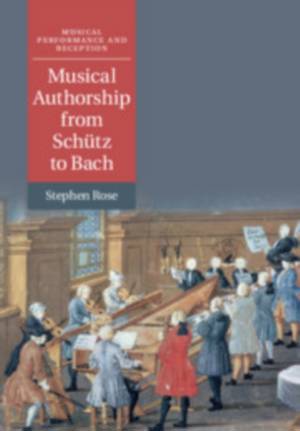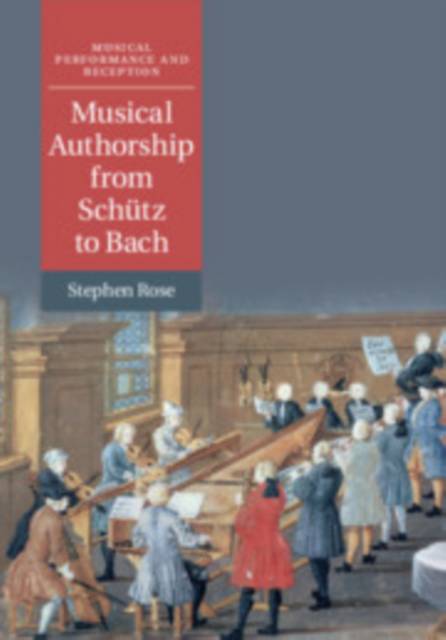
Bedankt voor het vertrouwen het afgelopen jaar! Om jou te bedanken bieden we GRATIS verzending (in België) aan op alles gedurende de hele maand januari.
- Afhalen na 1 uur in een winkel met voorraad
- In januari gratis thuislevering in België
- Ruim aanbod met 7 miljoen producten
Bedankt voor het vertrouwen het afgelopen jaar! Om jou te bedanken bieden we GRATIS verzending (in België) aan op alles gedurende de hele maand januari.
- Afhalen na 1 uur in een winkel met voorraad
- In januari gratis thuislevering in België
- Ruim aanbod met 7 miljoen producten
Zoeken
Omschrijving
What did the term 'author' denote for Lutheran musicians in the generations between Heinrich Schütz and Johann Sebastian Bach? As part of the Musical Performance and Reception series, this book examines attitudes to authorship as revealed in the production, performance and reception of music in seventeenth-century German lands. Analysing a wide array of archival, musical, philosophical and theological texts, this study illuminates notions of creativity in the period and the ways in which individuality was projected and detected in printed and manuscript music. Its investigation of musical ownership and regulation shows how composers appealed to princely authority to protect their publications, and how town councils sought to control the compositional efforts of their church musicians. Interpreting authorship as a dialogue between authority and individuality, this book uses an interdisciplinary approach to explore changing attitudes to the self in the era between Schütz and Bach.
Specificaties
Betrokkenen
- Auteur(s):
- Uitgeverij:
Inhoud
- Aantal bladzijden:
- 260
- Taal:
- Engels
- Reeks:
Eigenschappen
- Productcode (EAN):
- 9781108431286
- Verschijningsdatum:
- 12/08/2021
- Uitvoering:
- Paperback
- Formaat:
- Trade paperback (VS)
- Afmetingen:
- 170 mm x 244 mm
- Gewicht:
- 417 g

Alleen bij Standaard Boekhandel
+ 129 punten op je klantenkaart van Standaard Boekhandel
Beoordelingen
We publiceren alleen reviews die voldoen aan de voorwaarden voor reviews. Bekijk onze voorwaarden voor reviews.









